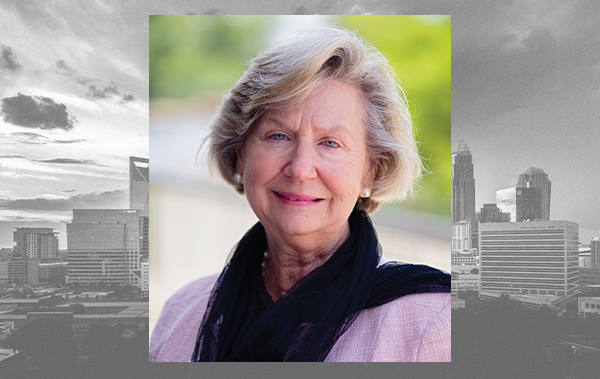This summer, League member cities and towns, along with NCLM’s advocacy staff, faced a difficult situation when it came to our legislative priorities.
After months of hard work making the case for our infrastructure needs, particularly in light of the financial and economic challenges created by the COVID-19 pandemic, the state budget proposals put together by legislators provided a substantial response. Combined with the dollars coming from the federal American Rescue Plan, state proposals to push hundreds of millions of dollars into both existing and new programs aimed at state and local infrastructure investment provide the promise of generational opportunity that municipal leaders have been discussing.
At the same time, the budget plan proposed by the state House contained several damaging policy provisions threatening local authority and potentially undermining some of the things that we do to make our communities attractive and livable.
They included things like restrictions on local stormwater programs, the undermining of local billboard rules and elimination of local tree ordinances.
By now, many of you have seen the response to these proposals by NCLM as an organization. That response includes letter from myself, on behalf of the NCLM Board of Directors, to individual legislators, legislative leaders and Gov. Roy Cooper. It includes direct conversations between municipal officials, with facilitation by NCLM staff, and legislators and members of the governor’s staff. It includes pushing a unified message out to the larger public, through the traditional media and social media, regarding the real-world effects of the potential policy changes.
Our message was certainly heard, as reflected in the budget that ultimately emerged from negotiations between the legislature and the governor.
These last few months provide us with important lessons in using our voice in smart ways that educate but do not alienate, and using that voice individually and collectively, through the League of Municipalities.
Having a unified and consistent message is where it begins. In the case of these budget policy provisions, NCLM staff sounded the alarm with its communications to member cities and towns regarding each provision, with concise messaging on the negative effects of each. That was followed up with the information reinforced through NCLM social media channels and other communications formats. Then, we began to see that same clear points made in examinations of the issues in newspapers and on television stations, something that only happened because of NCLM outreach and individual members making this same, consistent case at council meetings and in other public ways.
There are many examples of how these advocacy efforts have been amplified by you, member cities and towns, sometimes through re-publication of NCLM information
on social media channels and on their websites and others highlighting their individual circumstances.
Some noticeable efforts this fall include the City of Wilmington’s creation of a video, published across digital platforms, exploring the need for local stormwater rules that prevent flooding, helping residents see the connection between local stormwater programs and the protection of property and lives.
The City of Raleigh’s Mayor Pro Tem Nicole Stewart, a fellow member of the NCLM Board of Directors, made a similar case for local stormwater rules as she discussed the importance of understanding the nexus of state and local policy in a video distributed across the city’s social media channels.
These efforts come not only from state’s larger cities. Even when resources are limited, we’ve seen towns like Fairview in Union County help make the case for better broadband policy by republishing the League’s article “The Broadband Market Failure,” from the pages of this magazine onto its website.
I know that there are many more efforts out there, taking place every day, where cities and towns are using their voice in a unified way to make the case for how important local decision-making is in making our communities vibrant, attractive, and strong.
Keep up the good work and keep building from the examples that we see around us. We work as one to advance all.
















